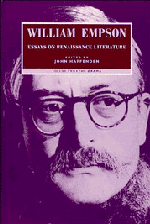Book contents
8 - The Duchess of Malfi
Published online by Cambridge University Press: 03 February 2010
Summary
Scholarly critics in our time have taken a great interest in the play, struggling to recover the exact flavour of opinion which it was intended to convey to the first audiences, and thus to pinpoint the spiritual wisdom which it is felt to contain; but when it is revived the notices commonly say: ‘The production rightly treated this extremely sensational tragedy as almost a farce, because it is practically a parody of the Elizabethan drama.’ There seems a failure of liaison here, but I expect the two parties mean nearly the same thing. Followers of Mr Eliot's tradition, it must be remembered, are very completely cut off from the real tradition; the unnatural is precisely what appears to them ‘significant’. The unscholarly dramatic critic, on the other hand, will have a vague memory that The Mysteries of Udolpho was an early example of sensationalism, and here a bit of history is alive to him. Roman Catholic priests, with their insinuating whispers and their torture-chambers, were the basis of Protestant sensationalism, whereas Miss Muriel Bradbrook and Professor Clifford Leech have been carefully brought up not to know that the Reformation ever happened. When a misbeliever commits one of his usual villainies, they think: ‘Oh goody; this is a holy Christian, so he must be giving us a subtle example of the highest morality.’ But in their own way, of course, they are militantly historical; they think that everybody in the period reverenced Degree; so they assume that we are intended to despise the duchess for marrying her major-domo.
- Type
- Chapter
- Information
- William Empson: Essays on Renaissance Literature , pp. 116 - 152Publisher: Cambridge University PressPrint publication year: 1994



